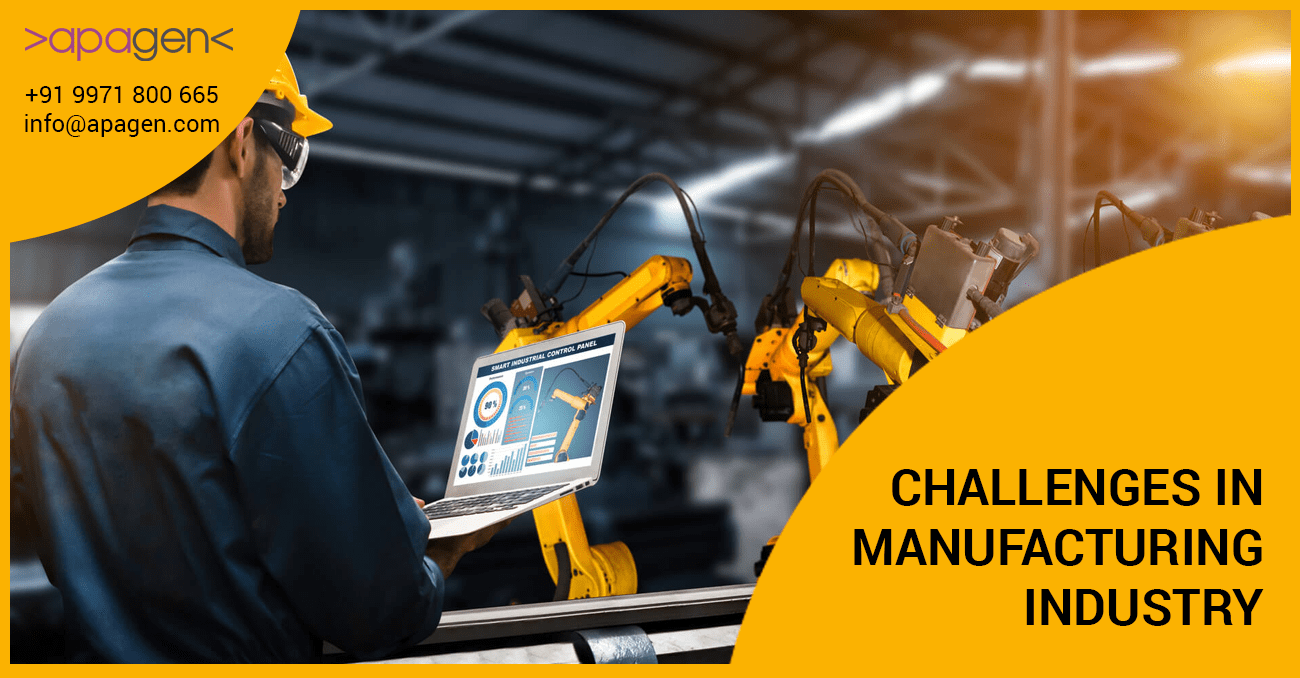
5 Biggest challenges in manufacturing industry
According to the latest report, greater than 50% of U.S. manufacturers have both started or plan to begin digital transformation initiatives to enhance their operational efficiency.
To a large extent, a lot of this motion is fueled by the COVID 19 pandemic. Last year, most producers needed to put their enlargement methods on maintenance to easily stay operational. While these considerations still exist, producers are now trying to fortify their operations for the long run.
While these initiatives include apparent benefits, there are lots of challenges in Manufacturing Industry of digital transformation. Today, we are taking a look at just a few of the key points that may lead to project failure or missed opportunities.
5 Challenges in Manufacturing Industry for Digital Transformation
1. The Cost of Initial Investments
Large enterprises sometimes have the budget and bandwidth required to embrace new digital solutions. However, small-to-medium manufacturers typically lack the means to pursue those same targets. These organizations might determine to stay with legacy methods, particularly if there are not any apparent pain points related to them.
If you are in this case, a strategic plan might help you progress ahead with confidence. This plan might help you prioritize which adjustments to make when to make them, and the way you’ll measure project outcomes.
With the best technique, Small Medium Business manufacturers can make smart investments in superior technologies that may deliver measurable advantages, together with:
- Improved operational effectivity
- Reduced downtime
- Improved data visibility and evaluation
While preliminary investment prices could also be steep, it is best to contemplate the chance value of failing to undertake new options that convey the aforementioned advantages. Will you fall behind the competitors? Will you lose model buzz and customer loyalty?
2. Cybersecurity challenges in manufacturing industry
Research shows that greater than 60% of manufacturers have skilled a minimum of one cybersecurity incident in their newly installed smart factories. As a consequence of these incidents, 43% have skilled system outages lasting greater than 4 days.
Any digital implementation plan ought to clearly outline how you’ll handle your current cybersecurity protocols. It also needs to clarify how your new system will improve these protocols, and what new methods you will have to undertake moving forward.
To perceive which areas of your corporation are probably the weakest, you must carry out three key tasks:
- Identify mission-critical data belongings
- Create enterprise process roadmaps that present how that data travels all through the group
- Determine the dangers accrued if that data turned misplaced, broken, or compromised
Step 2 should contain two separate maps. The first will depict the present data circulate, whereas the second will incorporate updates based mostly on any new technologies or business process reengineering work.
3. Lack of Digital Expertise
It’s no secret that manufacturing has become faster, sleeker, and extra automated than ever before. However, this business remains to be comparatively new to digital recreation.
As such, many manufacturing leaders might not perceive the internal workings of some of the newest developments, similar to:
- Process automation
- Advanced data analytics
- Cloud computing
- Sensors and IoT
- Digital twin technology
- Machine learning (ML)
- Artificial intelligence (AI)
- Zero-trust models
This lack of direct information can impede progress, but it is not a purpose to keep away from digital transformation altogether. Manufacturers who lack related technical experience can discover steerage from an independent third party who can leverage their business and technical information to guide technology purchases.
4. Inflexible Legacy Infrastructure
Modern manufacturing technologies, like manufacturing ERP solutions, are sturdy and future-focused. However, they’re not all the time suitable with an organization’s present infrastructure. In fact, the other usually holds true.
Before you roll out these new systems, you’ll have to make some hard (and sometimes unpopular) decisions. This might embody retiring legacy processes that are not as efficient as they used to be. It might imply retraining employees, even those that have been there for years or maintain a managerial rank.
Clearly, legacy infrastructure could be tough to exchange, so we advocate beginning small and discussing where digital technologies can have the best influence. Which manual processes will benefit the most from automation, and which of them can keep as-is? Features that incorporate predictive upkeep usually take precedence, as these can considerably enhance ROI.
5. Employee Pushback and Resistance
A manufacturer might closely make investments in digital transformation solely to search out that it didn’t obtain the anticipated outcomes. When this occurs, the difficulty isn’t all the time technical. In many instances, the difficulty is said to the individuals and processes behind the technology.
In manufacturing, it’s common for employees to withstand digitization. Often, this comes down to fear. Team members start to understand that their jobs might become out of date or change past recognition. They additionally understand that with the click of a button, they might make an incorrect transfer that holds serious consequences.
Examples of such missteps embrace:
- Incorrectly configuring machines
- Mishandling instruments or equipment
- Forwarding business-sensitive information to 3rd parties
- Opening unsafe or unknown attachments
Encouraging workers to work past these considerations might require a complete shift in company culture. If your group isn’t the sort to rejoice and embrace change, then don’t count on them to start today. Culture shifts take time.
We recommend establishing a continuous improvement culture where employees are motivated to talk up once they see opportunities for enhancement. This places them in the best mindset to embrace the adjustments wrought by a digital transformation.
At the same time that you’re remodelling your tradition, you need to be specializing in organizational change management. This won’t only assist you to change your tradition, but it would equip workers with the information they should embrace the precise modifications that can affect them.

No Comments